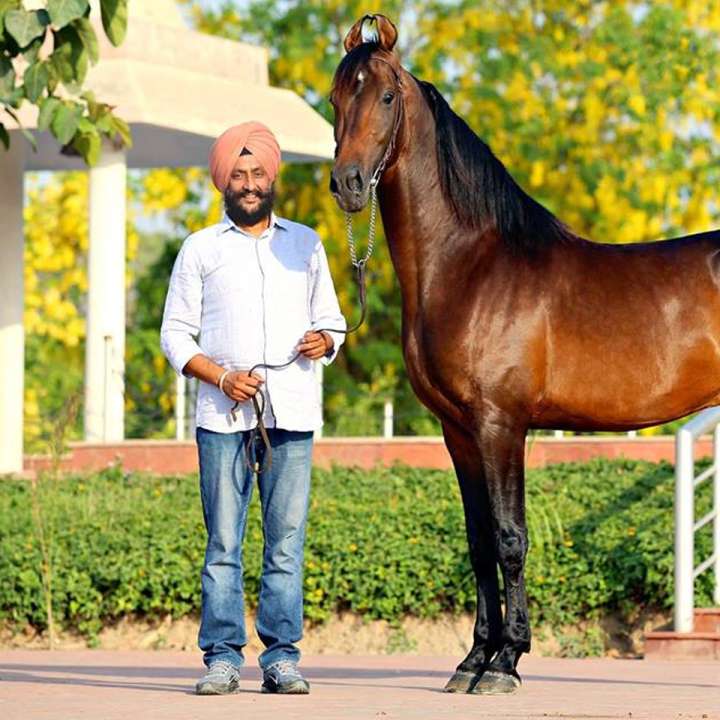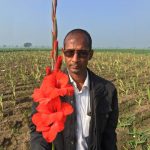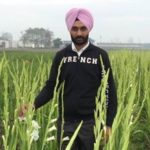Punjab – Malwa Region Based Farmer Paired Agriculture With Mechanized Technology, Have You Tried It…
Sirbeerinder Singh Sidhu, 44, keeping in mind about the Mother Nature, implements the best Eco-friendly farming practices through which time and money, both can be saved. And this thought of working in harmony with nature comes in his mind while he was far away in a foreign land.
Farming, as we know, is an age-old practice, which was followed by our ancestors and their ancestors… to cultivate food and sustain life. But, with the revolution and change in demands, today, agriculture has come a long way creating a vast history behind. Yes, there are some negative impacts of modern agriculture practices, but now not only the farming community but a lot of individuals from the city are also taking initiative towards sustainable agriculture practices.
Sirbeerinder Singh Sidhu is also one of those individuals who realized while living in abroad that he has done nothing for the land which provided him everything since his childhood. Although he was very successful living in abroad, learning about new farming technology, machinery and serving the community, he felt very despondent. And that was when he decided to take a long respite from his life in abroad and came back to his motherland, Punjab (India).
“After completing my graduation from Punjab University, I went to Canada to pursue higher studies and later on I got settled there. But after 5-6 years I felt a strong urge from the bottom of my heart that I need to go back to where I belong.”
Already aware of the foreign agriculture practices, Sirbeerinder Singh Sidhu decided to mechanize his own way of farming and then he paired commercial farming and agriculture technology together. Moreover, he decided to start Kinnow farming rather than wheat and paddy.
“Wheat and paddy are the conventional crops of Punjab which needs only 4-5 months of labour in the field. Instead of getting stuck in the cycle of wheat and paddy, farmers should focus on horticulture crops and other agri-allied activities which can be done around the year.”
Mr. Singh designed a machine which can be taken in the orchards by attaching it with a tractor and that machine can grade the Kinnows in 6 different sizes. The machine has inbuilt 9 cleaning brushes and 4 drying brushes; mechanization of the machine up to this level has reduced the cost of labour to almost zero.
“Machine designed by me can grades around 1-1 ½ tons of Kinnow in an hour and the running cost of this machine is 10-litre diesel per day.”
According to Mr. Singh – Earlier, the main obstacle faced was during the marketing of Kinnow, labour cost of harvesting Kinnows from the orchard and then taking care of it was very time and labour consuming and also was not economical. Since the grading machine is developed by Mr. Singh, half of the problem of harvesting and grading is already solved.
This mechanized way of grading Kinnows in six different sizes has created a valuable place for Mr. Singh’s harvest in the market, as it gets more pre-eminence and better return on investment. Using this mechanized way for grading the Kinnows is a valuable addition to the “Sidhu Model Farm”, and from the last 2 years, fruits produced by Mr. Singh is achieving first and second prizes at the State Level in Citrus Shows.
This is not the only approach that Mr. Singh is following; drip irrigation, crop waste management, green manuring, bio-gas plant, vermicomposting, organic production of vegetables, cereals, fruits, and wheat, are other means through which he is trying reduce the harmful footprints of conventional farming practices on his behalf.
Sirbeerinder Singh Sidhu’s contribution in the agriculture field has bagged him many awards and honour at state and national level, out of which these two are the main:
• Won State Level Citrus Show at Abohar, Punjab
• Received award form PUSA Delhi for Innovative Farming
Along with farming, Mr. Singh is also master of other animal husbandry and agri-allied activities, just because of his hobby. He rears dairy animals, poultry birds, kennel dogs, goats, and Marwari horses. He has also maintained a fish pond in half acre and forestry which includes 7000 Eucalyptus trees and 25 Bush Bamboos.
With his 12 years of experience in the agriculture field, Mr. Singh has focused his attention on some important matters and want to give the message to the society through these issues, which are the major concerns in Punjab ….
Subsidy and agriculture schemes:
Farmer assumes that Government is helping us by giving subsidy and making different agricultural schemes, but this is not true; this is a way of making farmers handicapped and grabbing their land. Farmers have to understand their good and bad themselves because agriculture is such a wide field that if it is done properly with determination then it can make anyone rich.
Mind Set of Young Generation:
Nowadays, the young generation is all set to go abroad or get settled in the city, they don’t care what kind of work they have to do in there; for them farming is a dirty job. What’s the sake of investing in the education and employment, if ultimately it will result in brain drain! Youth is unaware of the fact that agriculture is such a prosperous and diverse field that it can provide more advantages, profit, and happiness than the life in abroad.
Marketing in agriculture field:
Today, the farmer also has to become the seller by eliminating the middlemen and this is the only way by which farmer can clinch their forgotten position from the society. Farmer has to adopt modern eco-friendly practices which will lead them towards sustainable agriculture results.
Everyone should remember that-
” once in your life you need a doctor, a lawyer, a policeman and a preacher but every day, three times a day, you need a farmer.”









